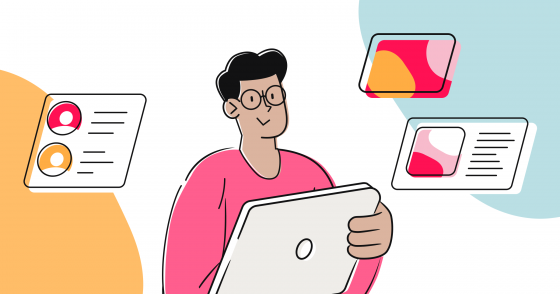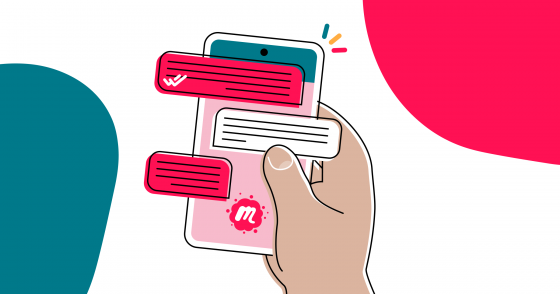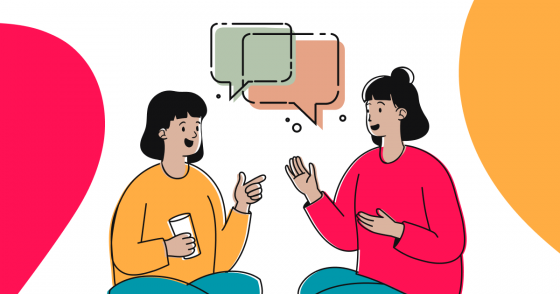Mental Health Awareness Month has been observed in the United States every May since 1949. Throughout these 74 years, some of the details of daily life may have changed, but people’s experience of mental health challenges like anxiety, loneliness, and depression continue to make an impact on their overall wellbeing in much the same way.
The purpose of this month is to create a national movement of empathy, understanding, and solidarity. One of the most important goals is to fight the stigma around mental health struggles, helping people open up about their experiences and learn how to address their needs without feeling shame.
A great way to be an ally during this time is through self-reflection, and being honest about your own state of mind. Nobody has their mental health completely “figured out.” It’s a continual process even for the most well-adjusted among us. Ask yourself where there’s room for improvement, then join the supportive and communal atmosphere of Mental Health Awareness Month.
This guide breaks down positive mental health themes into daily, weekly, and monthly practices. If you incorporate at least one practice from each category into your routine, you’ll see real improvements to your mood, mindfulness, and stress level year-round.
Daily mental health practices you can start right now
One of the first suggestions people typically come across is meditation. For anyone who hasn’t meditated before, the practice can seem daunting. Doubts arise: don’t you need to know special techniques, have the right location, and commit lots of time?
In reality, meditation is what you make of it, and it’s totally accessible to everyone. When you’re first starting out, just 60 seconds of meditation per day will make a healthy impact on your normal rhythms. All you have to do is close your eyes, breathe, and be present. Your aim is to achieve that no-mind state, where thoughts flow in and out of your awareness but you learn not to chase them down rabbit holes of worry.
If you’re looking for a mindful practice that’s a bit more active and engaging, you could try journaling. The physical act of writing down your thoughts with no filter can be not only soothing, but extremely rewarding when you reflect back on what you’ve written. Don’t fret about whether or not the writing is “good.” You’re not making art here—the journal is your own private space.

Mental health practices you can try once per week
Human beings are inherently social creatures, meaning there’s only so much solo work we can do on our mental health. Seeing others and building friendships is a vital aspect of our wellbeing. But personal interactions aren’t just the apple a day we eat to keep the doctor away. Instead, they can be a profound source of joy, stability, self-worth, and so much more.
Try going to at least one non-work activity every week. There are tons of friendly and casual communities who exist to connect over this very purpose, like The Philadelphia Happy Hour Meetup Group.
You could also choose to incorporate social activity into a mental health practice you’re already working on. For example, you could work on journaling and expressing your creativity in a motivational group environment with NYC Nature Journaling and Field Sketching.
More involved mental health practices to aim for monthly
Some of the most beneficial actions you can take for your mental health are difficult to achieve on a daily or even weekly basis. For example, it’s common knowledge at this point that too much screen time can be harmful both physically and emotionally. But you’ve got responsibilities, so you can’t put your whole life on hold to perform a prolonged digital detox every few days.
However, a more realistic goal of one screen-free weekend per month is certainly achievable. If you’re spending time with friends or loved ones, you could suggest board games, hikes, and other alternative activities to break out of the habit of constantly scrolling online or sitting in front of the TV.
Meetup can help you find opportunities for all kinds of mentally stimulating, screen-free outings. Communities like the Chicago Hiking, Outdoors, & Social Group and Boards & Brews – Dallas are dedicated to some of life’s simple (and tech-free) pleasures.
If you want to spend your digital detox doing something a little farther off the beaten path, there are plenty of unique Meetup groups like the Nashville Stoics (for bookworms who love philosophical discussions) and Miami Dragon Slayers Dragon Boat Team Practices (for staying fit through an ancient Chinese art of boat-racing).
But what if you can’t find the right kind of community gathering in your area? You can easily create your own Meetup group and invite others to join you in being more proactive about mental health.
Last modified on September 18, 2023










